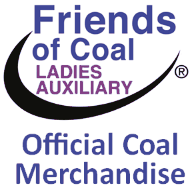
 











|
Signature Sponsor


November 4, 2021 - West Virginia Attorney General Patrick Morrisey held a press conference to provide updates to the office’s ongoing fight against federal overreach, specifically discussing the U.S. Supreme Court’s recent decision to hear West Virginia v. EPA – a case integral to President Biden’s climate change agenda.
The Supreme Court accepted the case Friday for oral arguments. It marks the most consequential development in environmental law since Attorney General Morrisey won an historic and unprecedented stay of the Obama-era Clean Power Plan at the Supreme Court in February 2016.
On Friday, the attorney general applauded the Court’s willingness to consider the state’s challenge to an appeals court ruling that would give the Environmental Protection Agency virtually unlimited authority to regulate wide swaths of everyday life with rules that would devastate coal mining, increase energy costs and eliminate countless jobs.
“This is a tremendous victory for West Virginia and our nation and we are extremely grateful for the Supreme Court’s willingness to hear our case,” Morrisey said. “Given the insurmountable costs of President Biden’s proposals, our team is eager to present West Virginia’s case as to why the Supreme Court should define the reach of EPA’s authority once and for all.”
“The case is incredibly important because Biden is trying to impose a radical climate policy on Americans and cut emissions in half by 2030. The D.C. Circuit gave EPA a green light to unilaterally decarbonize the power sector and other industries. But the Constitution does not allow a federal agency to have that much power to reshape America. The Supreme Court will now decide whether EPA has unfettered authority to decarbonize America,” he added.
The attorney general, in leading a 20-state coalition, urged the Supreme Court to take the case in April arguing the appeals court had ignored the February 2016 stay, which should have hinted that the high court viewed existing law as limiting EPA’s authority – not expanding it.
The attorney general’s coalition has argued the lower court erred in using a small provision of federal law to grant EPA broad authority – without congressional input – to unilaterally decarbonize virtually any sector of the economy, including factories and power plants, as well as the millions of homes and small businesses that use natural gas for heat.
Without the Supreme Court’s intervention, the coalition had argued the appeals court ruling could set a devastating standard and lead to decisions of great economic consequence based upon unlawful EPA regulations, not the rule of law.
The coalition’s petition, filed April 29, argued a ruling from the U.S. Court of Appeals for the District of Columbia Circuit violates the constitutional separation of powers. It contends the lower court inappropriately interpreted Section 111 of the Clean Air Act as authorizing EPA to sidestep Congress to exercise broad regulatory power that would radically transform the nation’s energy grid and force states to fundamentally shift their energy portfolios away from coal-fired generation.
Morrisey argues the appeals court ruling, if left intact, would grant EPA even greater authority than President Obama’s EPA originally claimed with its so-called Clean Power Plan.
Attorney General Morrisey challenged the Obama-era Power Plan on the day it was published.
President Trump’s EPA, in acknowledging the February 2016 stay, repealed the rule in 2019 and the underlying case was dismissed by the appeals court without the Supreme Court having a chance to resolve the matter on the merits.
West Virginia led the April 29 petition with support from attorneys general in Alabama, Alaska, Arkansas, Georgia, Indiana, Kansas, Louisiana, Missouri, Montana, Nebraska, North Dakota, Ohio, Oklahoma, South Carolina, South Dakota, Texas, Utah, Wyoming and the governor of Mississippi.
Read a copy of the attorney general’s petition at https://bit.ly/3t4kc5h. |
 








|